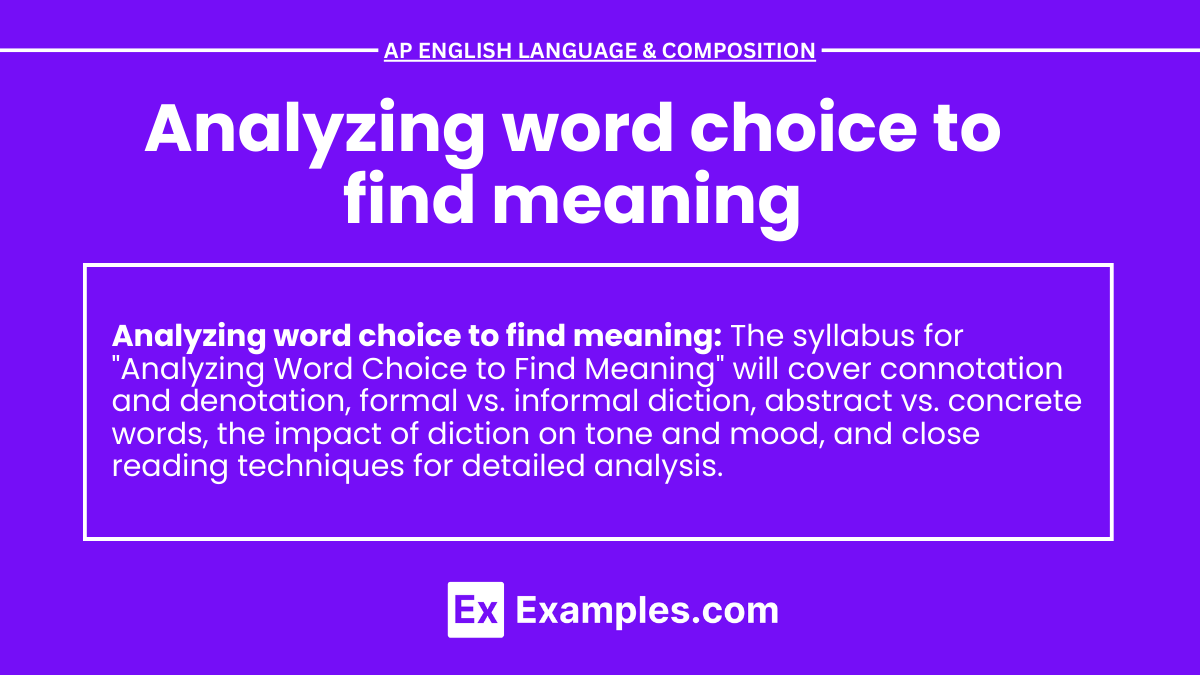In the study of AP English Language and Composition, analyzing word choice is crucial for uncovering the deeper meanings in a text. Understanding how authors use specific diction enhances the interpretation of academic essay writing and argumentative speeches. By examining the rhetorical sentences and the connotations and denotations of words, students can gain insights into the tone, purpose, and emotional impact of a piece. This skill not only aids in crafting compelling analyses but also strengthens overall comprehension in AP English Language and Literature.
Learning Objectives
By the end of this lesson on analyzing word choice to find meaning, students will be able to develop a final thesis statement that articulates the significance of diction in a text. They will enhance their critical thinking skills by dissecting rhetorical sentences to understand how word choice affects meaning. Students will practice writing rhetorical essays, persuasive essays, expository essays, and explanatory essays, using cumulative sentences to support their analyses effectively.
Understanding Diction
Diction refers to the choice of words and style of expression that an author uses. It can be categorized into various types, each contributing to the overall tone and meaning of a text.
Key Terms
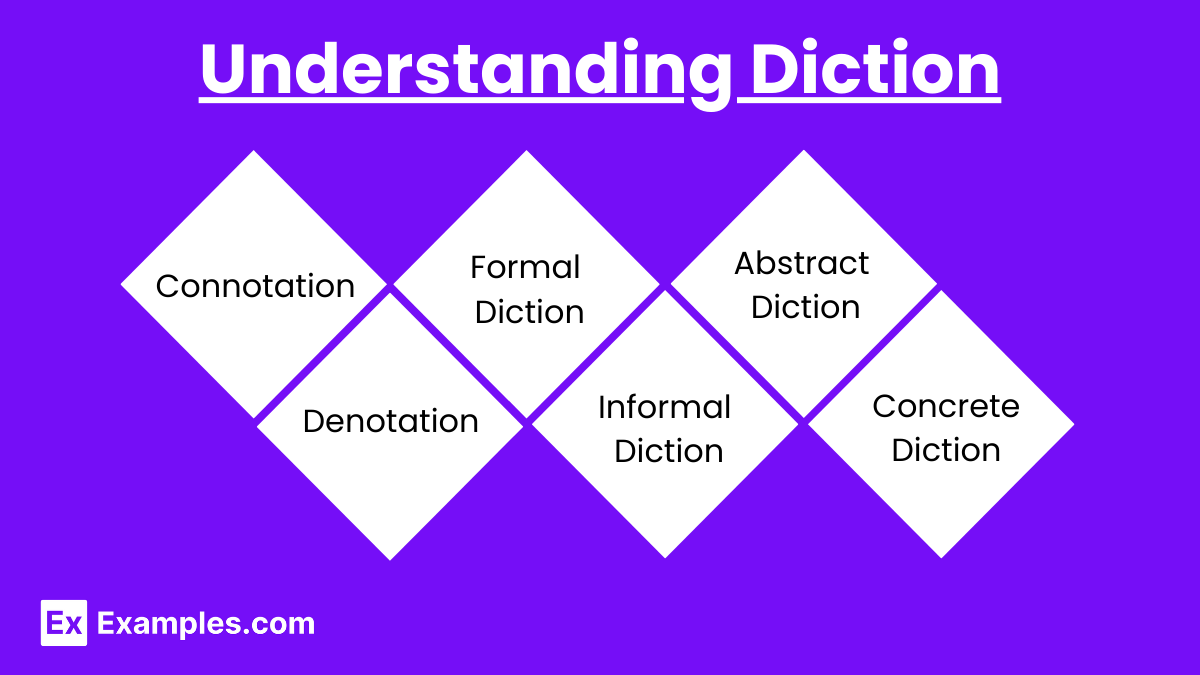
- Connotation: The implied or emotional meaning of a word.
- Denotation: The literal, dictionary definition of a word.
- Formal Diction: Language that is lofty, dignified, and impersonal.
- Informal Diction: Language that is more conversational and can include slang or colloquialisms.
- Abstract Diction: Words that express ideas or concepts rather than physical objects.
- Concrete Diction: Words that describe physical objects, sensory details, or specific events.
Analyzing the Impact of Word Choice
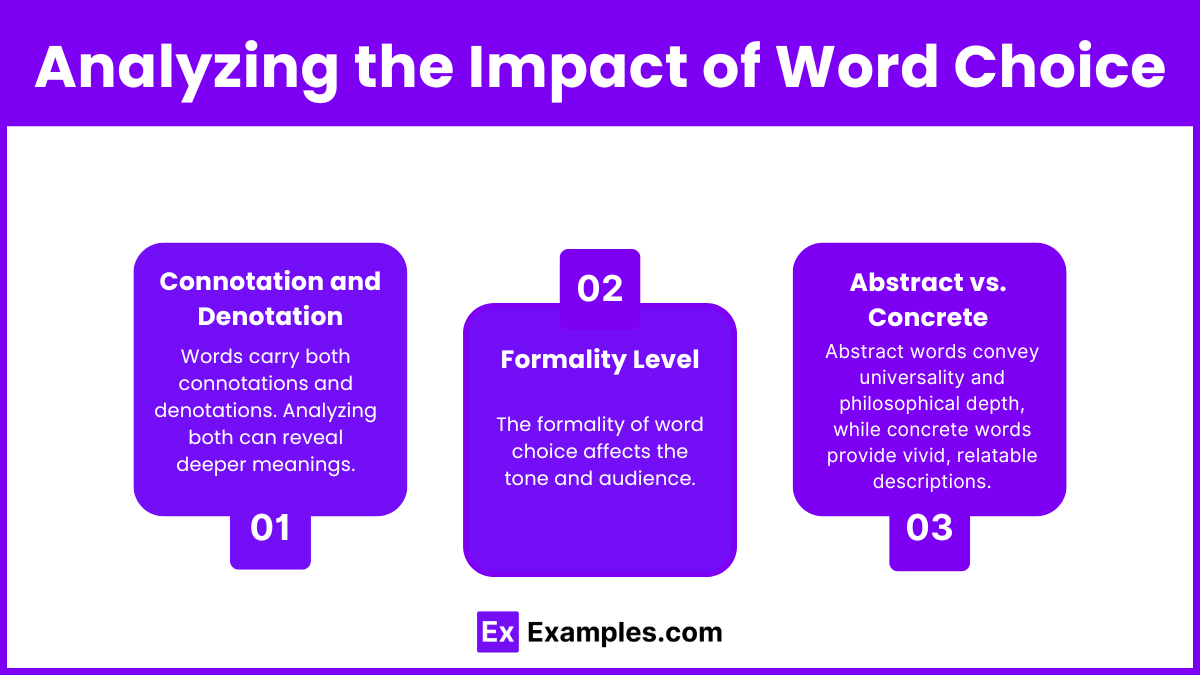
Connotation and Denotation:
- Words carry both connotations and denotations. Analyzing both can reveal deeper meanings.
- Example: The word “home” denotes a physical place where one lives (denotation) but connotes warmth, family, and comfort (connotation).
Formality Level:
- The formality of word choice affects the tone and audience.
- Example: In an academic essay, formal diction lends credibility and seriousness, whereas informal diction might be used in a personal narrative to create a conversational tone.
Abstract vs. Concrete:
- Abstract words can create a sense of universality or philosophical depth, while concrete words make descriptions more vivid and relatable.
- Example: “Love” (abstract) vs. “a warm hug” (concrete).
Identifying Purpose and Effect
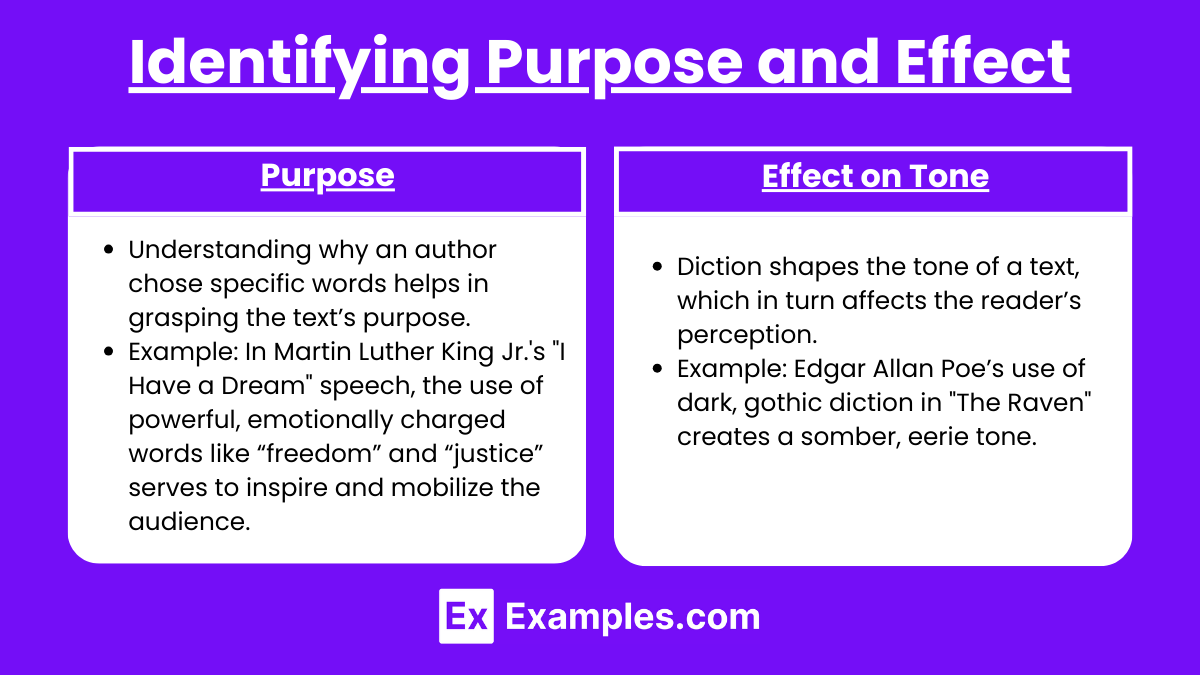
Purpose:
- Understanding why an author chose specific words helps in grasping the text’s purpose.
- Example: In Martin Luther King Jr.’s “I Have a Dream” speech, the use of powerful, emotionally charged words like “freedom” and “justice” serves to inspire and mobilize the audience.
Effect on Tone:
- Diction shapes the tone of a text, which in turn affects the reader’s perception.
- Example: Edgar Allan Poe’s use of dark, gothic diction in “The Raven” creates a somber, eerie tone.
Techniques for Analyzing Diction
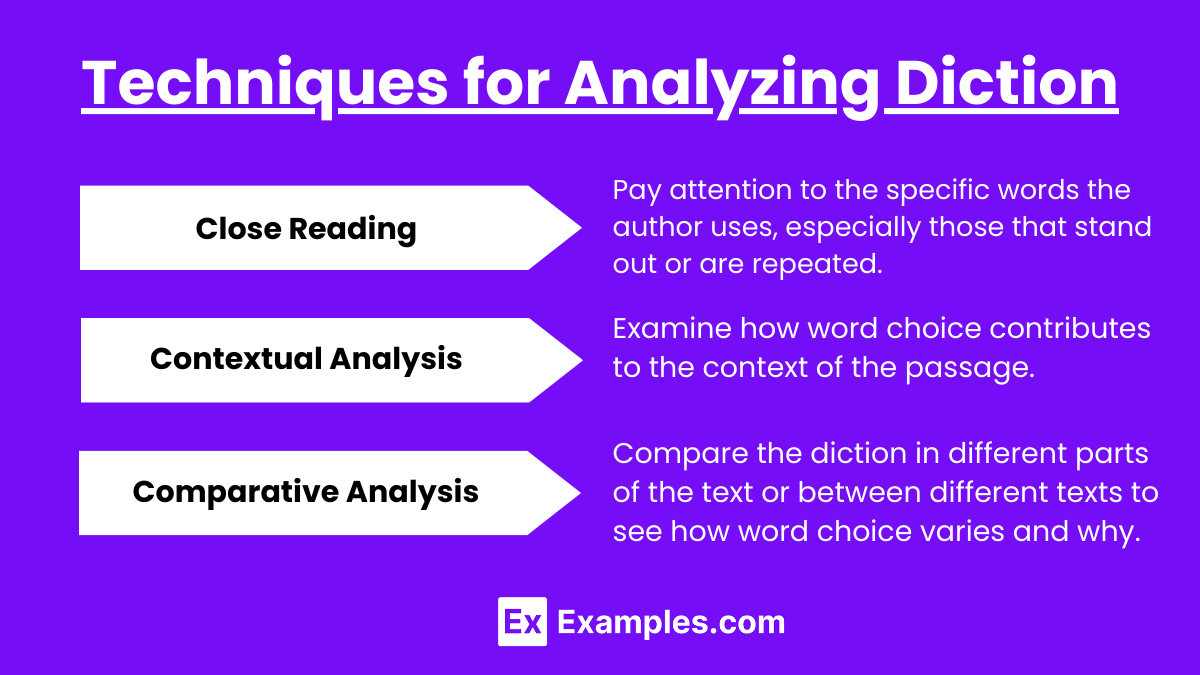
Close Reading:
- Pay attention to the specific words the author uses, especially those that stand out or are repeated.
- Consider synonyms the author could have used and why they chose the words they did.
Contextual Analysis:
- Examine how word choice contributes to the context of the passage.
- Look at how diction interacts with other elements like syntax, imagery, and figurative language.
Comparative Analysis:
- Compare the diction in different parts of the text or between different texts to see how word choice varies and why.
- Example: Compare the formal diction in the opening paragraph of an essay to the more informal conclusion to see how the writer transitions their argument

